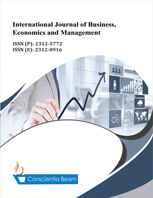The Impact of Military Spending on Economic Wellbeing in Nigeria
DOI:
https://doi.org/10.18488/journal.62.2019.64.186.200Abstract
The impact of military spending on domestic output is contentious and therefore requires further analysis on a country by country basis to determine its level of significance. Nigeria’s military contributions to the Economic Community of West African States (ECOWAS) sub-region and the recent rise of various insurgencies, particularly, Jamāʿat Ahl al-Sunna lil-Daʿawah wa al-Jihād’ (Boko Haram) – arguably the most fatal insurgent group – has increased Nigeria’s military expenditure. This study investigates the impact of this increase in military spending on the economic well-being (measured by GDP per capita) of Nigerians using the Autoregressive Distributed Lag (ARDL) bounds testing approach to co-integration for the period from 1988 to 2017. The results suggest that there is a positive relationship between military spending and economic well-being in Nigeria. However, the impact on citizens’ wellbeing is not instantaneous as the variable is only significant after the current year spending; which does not last longer than a year. The study therefore recommends that defense spending be strategic, and that all earmarked funds for defense be deployed appropriately so that increases in wellbeing can be more long-term as opposed to lasting for only one year.

